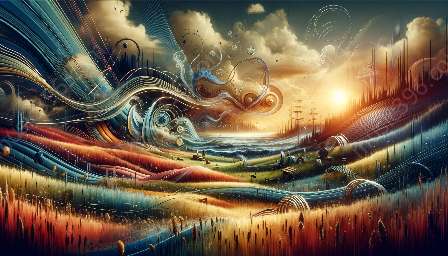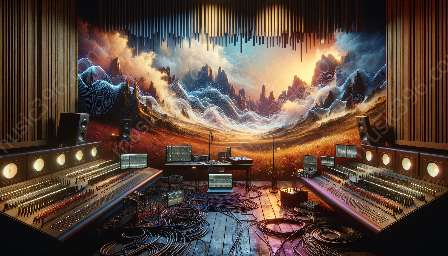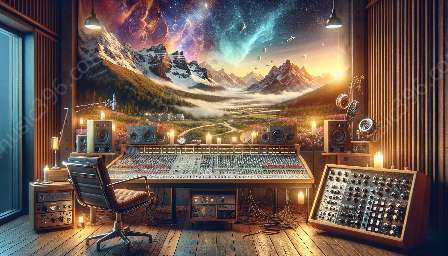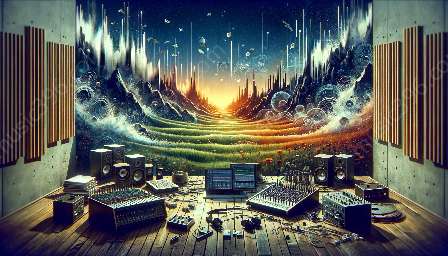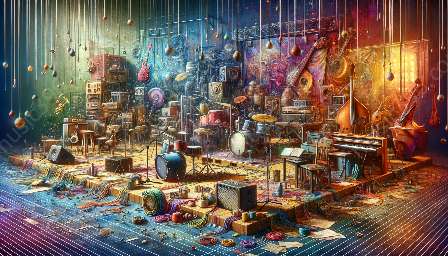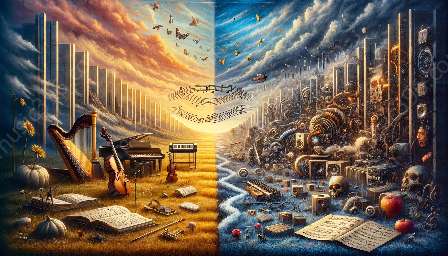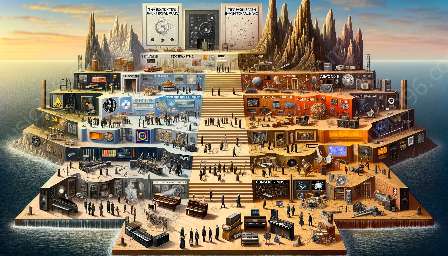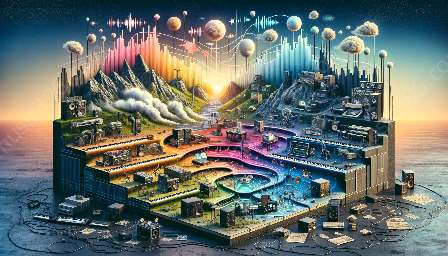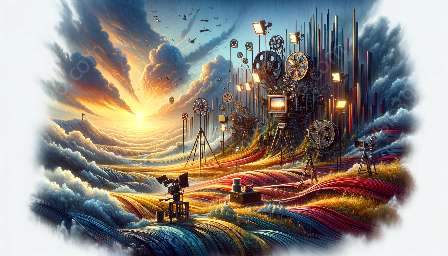Experimental music and cultural anthropology have a deep and fascinating connection that has influenced the evolution of music and culture. This topic cluster will explore the relationship between experimental music and cultural anthropology, featuring influential experimental music artists and examining the impact of experimental and industrial music on society and culture.
The Intersection of Experimental Music and Cultural Anthropology
Experimental music is a genre that pushes the boundaries of traditional musical conventions, often incorporating unconventional sounds and techniques to create innovative and thought-provoking compositions. Cultural anthropology, on the other hand, is the study of human cultures, societies, and behaviors, aiming to understand the diversity and dynamics of human life.
At their intersection, experimental music and cultural anthropology reveal a symbiotic relationship, as experimental music often reflects and responds to cultural, societal, and technological changes. Cultural anthropology provides a lens through which we can analyze the impact of experimental music on human behavior, identity, and expression.
Influential Experimental Music Artists
Several influential experimental music artists have significantly contributed to the exploration of cultural themes, societal narratives, and human experiences through their musical endeavors. These artists have transcended traditional musical boundaries and have been pivotal in shaping the intersecting realms of experimental music and cultural anthropology.
John Cage
John Cage, an avant-garde composer and music theorist, is renowned for his groundbreaking compositions that challenged conventional notions of music and sound. His experimentation with chance operations and non-traditional instruments reflects a profound understanding of cultural diversity and a deep exploration of human perception and expression.
Laurie Anderson
Laurie Anderson is a celebrated performance artist and experimental musician whose work often delves into societal and cultural commentary. Her evocative use of technology and multimedia in her performances reflects her engagement with cultural anthropology, as she explores the impact of technology on human communication and interaction.
Karlheinz Stockhausen
Karlheinz Stockhausen, a pioneering figure in electronic music, is known for his visionary compositions that blur the boundaries between music and anthropology. His exploration of transcultural influences and his use of electronic instruments demonstrate a deep understanding of cultural diversity and the dynamic nature of human creativity.
The Influence of Experimental and Industrial Music on Culture
Experimental and industrial music have left an indelible mark on culture, influencing societal attitudes, artistic expressions, and technological advancements. These genres have often served as a mirror reflecting the complexities and nuances of human experiences across different cultural landscapes.
Industrial music, characterized by its abrasive soundscapes and thematic explorations of society's underbelly, has provided a platform for cultural anthropology to examine the darker facets of human existence. Through its provocative and confrontational aesthetic, industrial music confronts social and cultural norms, inviting critical reflection and discourse.
Experimental music, on the other hand, has catalyzed cultural shifts by embracing unconventional approaches to composition and performance. From musique concrète to minimalism, experimental music has expanded the boundaries of sonic expression, challenging cultural constructs and offering new perspectives on the human experience.
Conclusion
In conclusion, the connections between experimental music and cultural anthropology are profound and multifaceted, fostering a rich tapestry of artistic exploration and cultural understanding. Influential experimental music artists have contributed to this discourse, shaping and reshaping the intersections of music, society, and human culture. Through their innovative and boundary-pushing work, experimental and industrial music have become integral components of cultural anthropology, providing invaluable insights into the human condition across diverse cultural landscapes.








